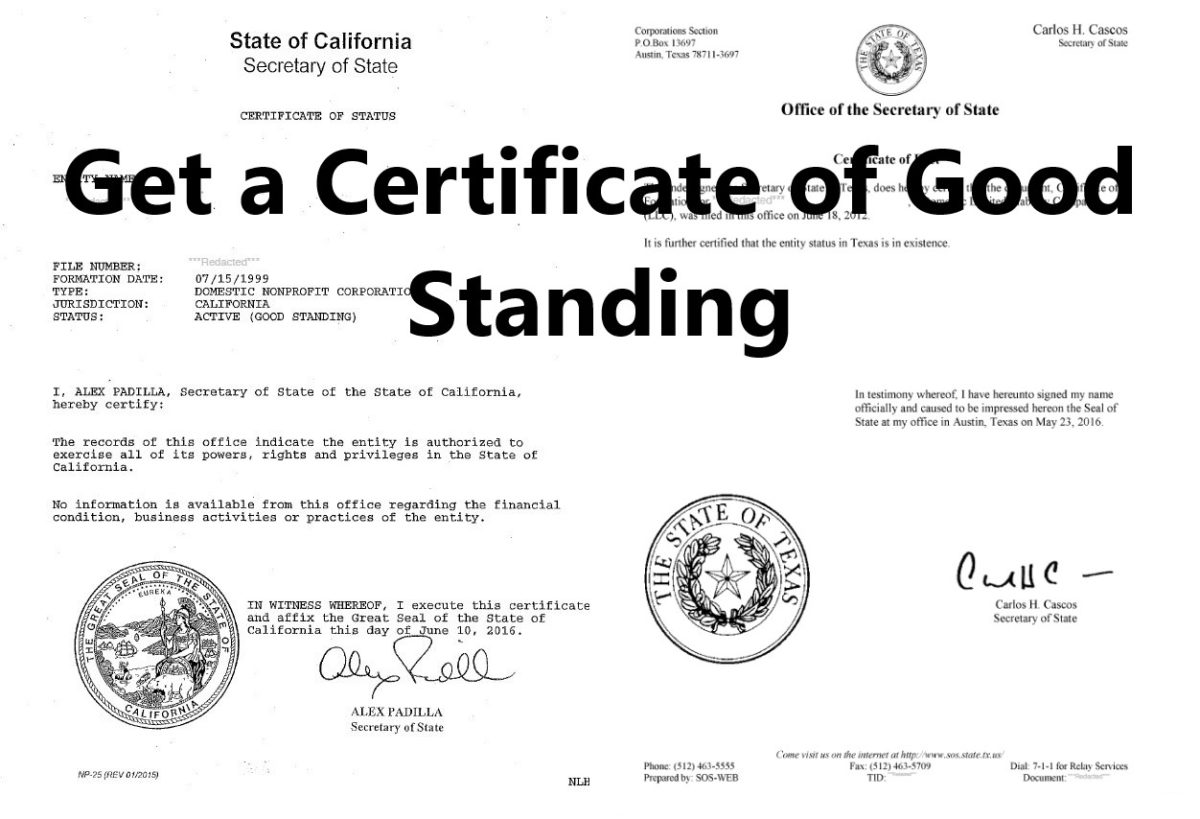Introduction to the Certificate of Good Standing
A Certificate of Good Standing, often synonymous with a Certificate of Existence or Certificate of Authorization, is a crucial document for businesses across the globe. This certificate serves as a testament to a company’s compliance with local regulations and its ability to conduct business legally. Whether you’re an established enterprise or a fledgling startup, understanding the importance of this certificate is pivotal for your corporate journey.
Understanding the Certificate of Good Standing
What is a Certificate of Good Standing?
A Certificate of Good Standing confirms that a business is in compliance with the statutory requirements and is authorized to operate in its jurisdiction. It’s a sign of corporate health, indicating that the company has been diligent in its legal and financial obligations.
The Importance of Maintaining Good Standing
Why is it Vital for Your Business?
Maintaining a good standing status not only enhances your business’s credibility but also facilitates various corporate activities such as securing funding, entering contracts, and expanding operations.
Acquiring Your Certificate
How to Obtain a Certificate of Good Standing
Obtaining this certificate involves submitting a request to the relevant state or country’s corporate filing office. The process varies by jurisdiction but generally requires the company to be up-to-date with its filings and payments.
Key Benefits of Holding a Certificate
Leveraging the Certificate for Business Success
Holding a Certificate of Good Standing can be a game-changer for businesses, offering advantages like building trust with stakeholders, facilitating banking activities, and supporting expansion plans.
Compliance: The Path to Good Standing
Ensuring Your Business Complies with Legal Requirements
Staying compliant involves regular filings, tax payments, and adhering to local business regulations, which are all essential for maintaining good standing.
The Legal Implications of Good Standing
Legal Consequences of Losing Good Standing Status
Losing this status can lead to dire consequences, including fines, loss of business authority, and difficulties in legal enforcement actions.
Restoring Good Standing
Steps to Regain Compliance and Good Standing
If a business falls out of good standing, it must address the underlying issues, such as unpaid taxes or missed filings, to restore its status.
The Role of Good Standing in Corporate Transactions
Impact on Mergers, Acquisitions, and Financing
In corporate transactions, a Certificate of Good Standing is often a prerequisite, underscoring the business’s legitimacy and operational status.
International Perspective on Good Standing
Good Standing in a Global Context
For businesses operating internationally, a Certificate of Good Standing might be required to establish foreign entities or engage in cross-border transactions.
Frequently Asked Questions About Certificates of Good Standing
Addressing Common Queries
This section can include questions like “How long is a Certificate of Good Standing valid?” or “Can a sole proprietorship obtain a Certificate of Good Standing?”
Conclusion: The Keystone of Corporate Integrity
In conclusion, a Certificate of Good Standing is more than just a piece of paper; it’s a cornerstone of corporate integrity and a passport for business opportunities. By understanding and maintaining good standing, companies can ensure their legal and operational footing, paving the way for sustainable success and growth.
For additional resources, you may want to check out State Department of Corporations for specific jurisdictional requirements and Business Compliance Guides for maintaining good standing.
How to Obtain a Certificate of Good Standing?
Get Your Certificate of Good Standing Here

